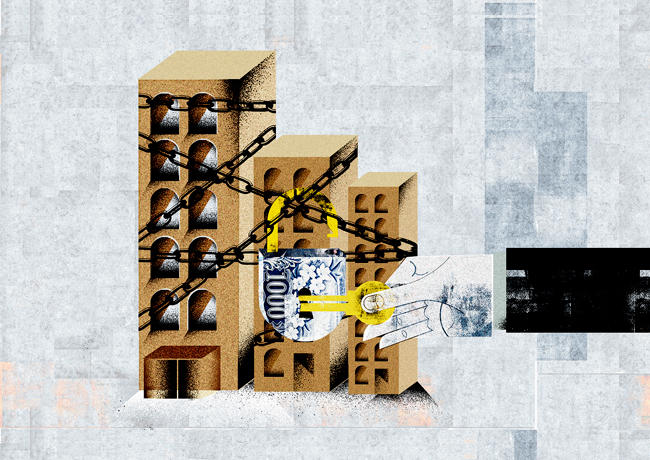Christopher Dillon, a Hong Kong-based entrepreneur, writer, and real estate investor, is the author of two books about real estate (his first covered property transactions in Hong Kong, and his latest published this past May, covers Japan). “Landed: The guide to buying property in Japan,” is a must-read, not just for those considering buying a property in Japan, but also for individuals who are already homeowners, those who may be interested in refinancing, and there’s even something to be learned by long-term residents who are renting. At the very least, “Landed” is a ready-reference for the aforementioned individuals, and for investors who stand to gain from a better understanding of how real estate works in Japan.
As a previous longtime resident of the Land of the Rising Sun, I was impressed by the breadth of knowledge that Dillon packed into “Landed,” all in a very readable manner, and with citations for future reference. The book begins with an introduction to the Japanese people, that is the worrisome demographics of Japan (which could represent opportunity to the discerning buyer), and shifts quickly to discussing essentially the A-Z of how to buy your new home. Being bilingual and an all-cash buyer will certainly make life easier when transacting in Japan, but possibly the next best thing is to have a spouse, friend, or agent that can assist with the language, some cash reserves, and of course being armed with “Landed.” Know that Dillon doesn’t take any shortcuts. Readers will want to pay attention to his chapter covering “risk factors,” which is an Antiquities-to-Zoning overview of what one might encounter and thus, should be on the lookout for.
As I said above, the book is very readable. What I liked especially, and think is particularly helpful, are the shaded information boxes, some of which discuss a particular matter such as how to measure a Japanese dwelling, and several of which feature anecdotal recaps about individuals looking for and buying real estate in Japan. In addition, readers should find helpful Dillon’s use of checklist-like explanations of the various aspects of the buying process down to the minutiae. Also likely to be of assistance is his inclusion of relevant Japanese terms in their respective original form. Finally, for those sourcing for non-owner occupied properties and/or investment ideas including passive equity deployment, be sure to review “Landed”’s mini-section entitled “Other Opportunities.”
While Japan’s demographics and its prolonged economic funk are concerning, there is a lot of value in real estate that remains locked—similar to its equity markets. That’s not to say it won’t be a challenge to unlock value, nor is it the case that one can blindly throw around money and expect to come out ahead. However, with the proper due diligence (including consulting “Landed”) and time horizon, Japan represents a great opportunity. Cash is king in Japanese real estate, but applying leverage with a fairly solid loan-to-value ratio along with rock-bottom interest rates, makes for highly rewarding possibilities.
Blog:
Tags:
Other posts by Steven Towns:







